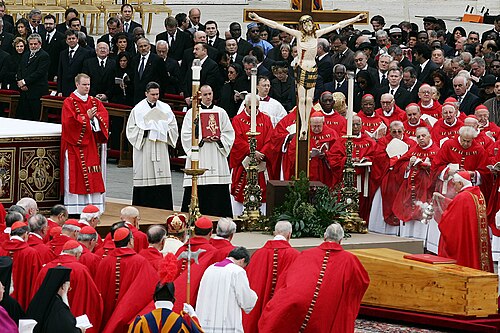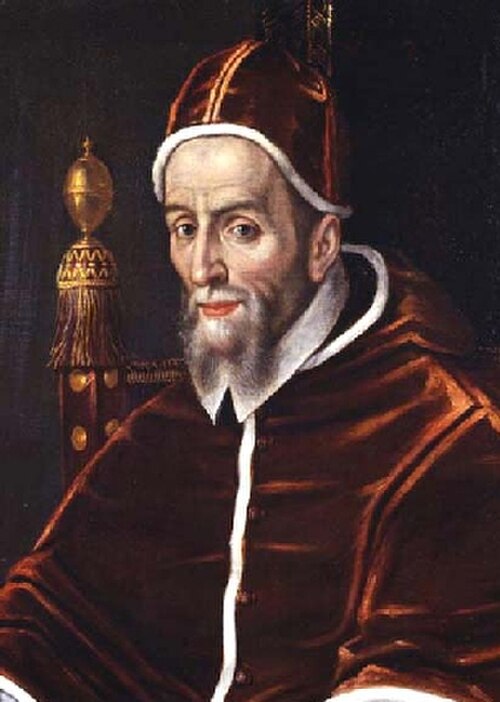Bishopnoun
(Christianity) An overseer of congregations: either any such overseer, generally speaking, or (in Eastern Orthodoxy, Catholicism, Anglicanism, etc.) an official in the church hierarchy (actively or nominally) governing a diocese, supervising the church's priests, deacons, and property in its territory.
Bishopnoun
A similar official or chief priest in another religion.
Bishopnoun
(obsolete) Any watchman, inspector, or overlooker.
Bishopnoun
(obsolete) The holder of the Greek or Roman position of episcopus, supervisor over the public dole of grain, etc.
Bishopnoun
The chief of the Festival of Fools or St. Nicholas Day.
Bishopnoun
(chess) The chess piece denoted ♗ or ♝ which moves along diagonal lines and developed from the shatranj alfil ("elephant") and was originally known as the aufil or archer in English.
Bishopnoun
Any of various African birds of the genus Euplectes; a kind of weaverbird closely related to the widowbirds.
Bishopnoun
(dialectal) A ladybug or ladybird, beetles of the family Coccinellidae.
Bishopnoun
(alcoholic beverages) A sweet drink made from wine, usually with oranges, lemons, and sugar; mulled and spiced port.
Bishopnoun
A bustle.
Bishopnoun
A children's smock or pinafore.
Bishopverb
(Christianity) To act as a bishop, to perform the duties of a bishop, especially to confirm another's membership in the church.
Bishopverb
To confirm (in its other senses).
Bishopverb
(Christianity) To make a bishop.
Bishopverb
To provide with bishops.
Bishopverb
To permit food (especially milk) to burn while cooking (from bishops' role in the inquisition or as mentioned in the quotation below, of horses).
Bishopverb
To make a horse seem younger, particularly by manipulation of its teeth.
Bishopverb
To murder by drowning.
Bishopnoun
A spiritual overseer, superintendent, or director.
Bishopnoun
In the Roman Catholic, Greek, and Anglican or Protestant Episcopal churches, one ordained to the highest order of the ministry, superior to the priesthood, and generally claiming to be a successor of the Apostles. The bishop is usually the spiritual head or ruler of a diocese, bishopric, or see.
Bishopnoun
In the Methodist Episcopal and some other churches, one of the highest church officers or superintendents.
Bishopnoun
A piece used in the game of chess, bearing a representation of a bishop's miter; - formerly called archer.
Bishopnoun
A beverage, being a mixture of wine, oranges or lemons, and sugar.
Bishopnoun
An old name for a woman's bustle.
Bishopverb
To admit into the church by confirmation; to confirm; hence, to receive formally to favor.
Bishopverb
To make seem younger, by operating on the teeth; as, to bishop an old horse or his teeth.
Bishopnoun
a clergyman having spiritual and administrative authority; appointed in Christian churches to oversee priests or ministers; considered in some churches to be successors of the twelve apostles of Christ
Bishopnoun
port wine mulled with oranges and cloves
Bishopnoun
(chess) a piece that can be moved diagonally over unoccupied squares of the same color
Bishop
A bishop is an ordained or appointed member in a religious institution, who is generally entrusted with a position of authority and oversight. The title is most often used in Christian churches, but is also used in some Japanese Buddhist institutions, and by the Japanese new religion Tenrikyo.
Popenoun
An honorary title of the Roman Catholic bishop of Rome as father and head of his church, a sovereign of the Vatican city state.
Popenoun
Any similarly absolute and 'infallible' authority.
Popenoun
(by extension) Any similar head of a religion.
Popenoun
(uncommon) A theocrat, a priest-king, including at first especially over the imaginary land of Prester John or now in figurative and alliterative uses.
Popenoun
(UK) An effigy of the pope traditionally burnt in Britain on Guy Fawkes' Day and occasionally at other times.
Popenoun
Pope Day, the present Guy Fawkes Day.
Popenoun
(Coptic Church) An honorary title of the Coptic bishop of Alexandria as father and head of his church.
Popenoun
(Eastern Orthodoxy) An honorary title of the Orthodox bishop of Alexandria as father and head of his autocephalous church.
Popenoun
Any bishop of the early Christian church.
Popenoun
(Britain) The ruffe, a small Eurasian freshwater fish (Gymnocephalus cernua); others of its genus.
Popenoun
The Atlantic puffin (Fratercula arctica).
Popenoun
The painted bunting (Passerina ciris).
Popenoun
(rare) The red-cowled cardinal (Paroaria dominicana).
Popenoun
(alcoholic beverages) Any mulled wine (traditionally including tokay) considered similar and superior to bishop.
Popenoun
(Russian Orthodoxy) nodot=11, a Russian Orthodox priest.
Popenoun
The whippoorwill (Caprimulgus vociferus).
Popenoun
The nighthawk (Chordeiles minor).
Popeverb
To act as or like a pope.
Popeverb
To convert to Roman Catholicism.
Popenoun
Any ecclesiastic, esp. a bishop.
Popenoun
The bishop of Rome, the head of the Roman Catholic Church. See Note under Cardinal.
Popenoun
A parish priest, or a chaplain, of the Greek Church.
Popenoun
A fish; the ruff.
Popenoun
the head of the Roman Catholic Church
Popenoun
English poet and satirist (1688-1744)
Pope
The pope (Latin: papa, from Greek: πάππας, romanized: pappas, ), also known as the supreme pontiff (Pontifex maximus), the Roman pontiff (Romanus Pontifex) or the Sovereign Pontiff (Summus Pontifex), is the bishop of Rome, head of the worldwide Catholic Church and head of state or sovereign of the Vatican City State. According to Catholics, the primacy of the bishop of Rome is largely derived from his role as the apostolic successor to Saint Peter, to whom primacy was conferred by Jesus, giving him the Keys of Heaven and the powers of , naming him as the upon which the church would be built.







































